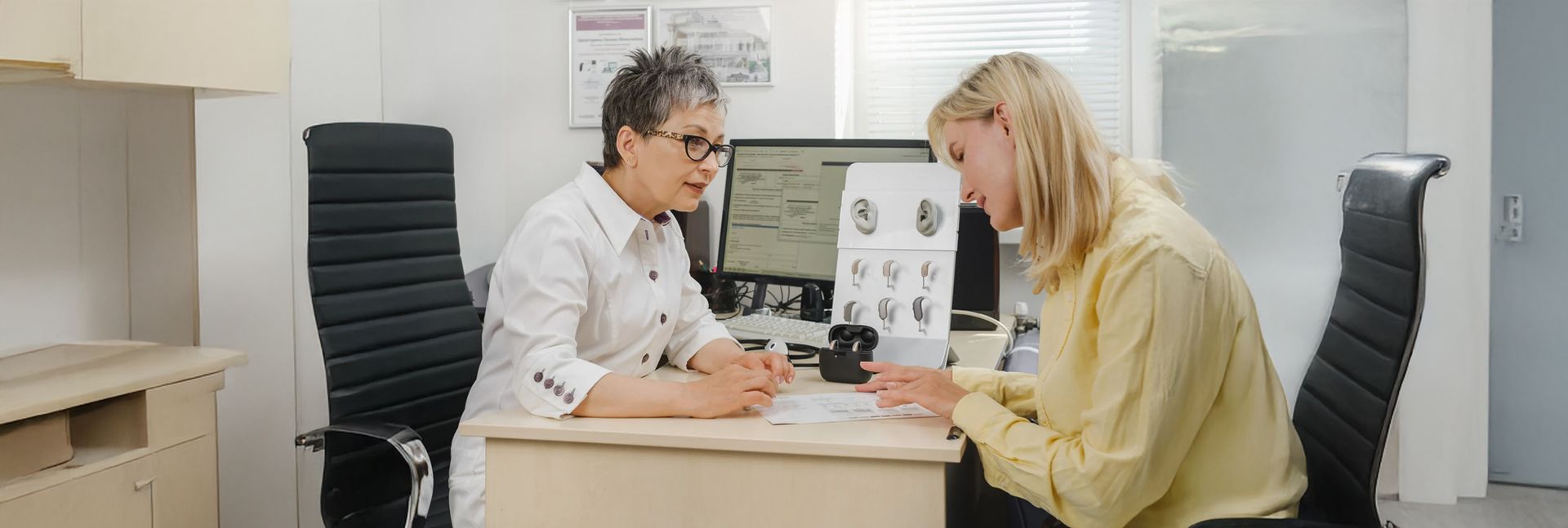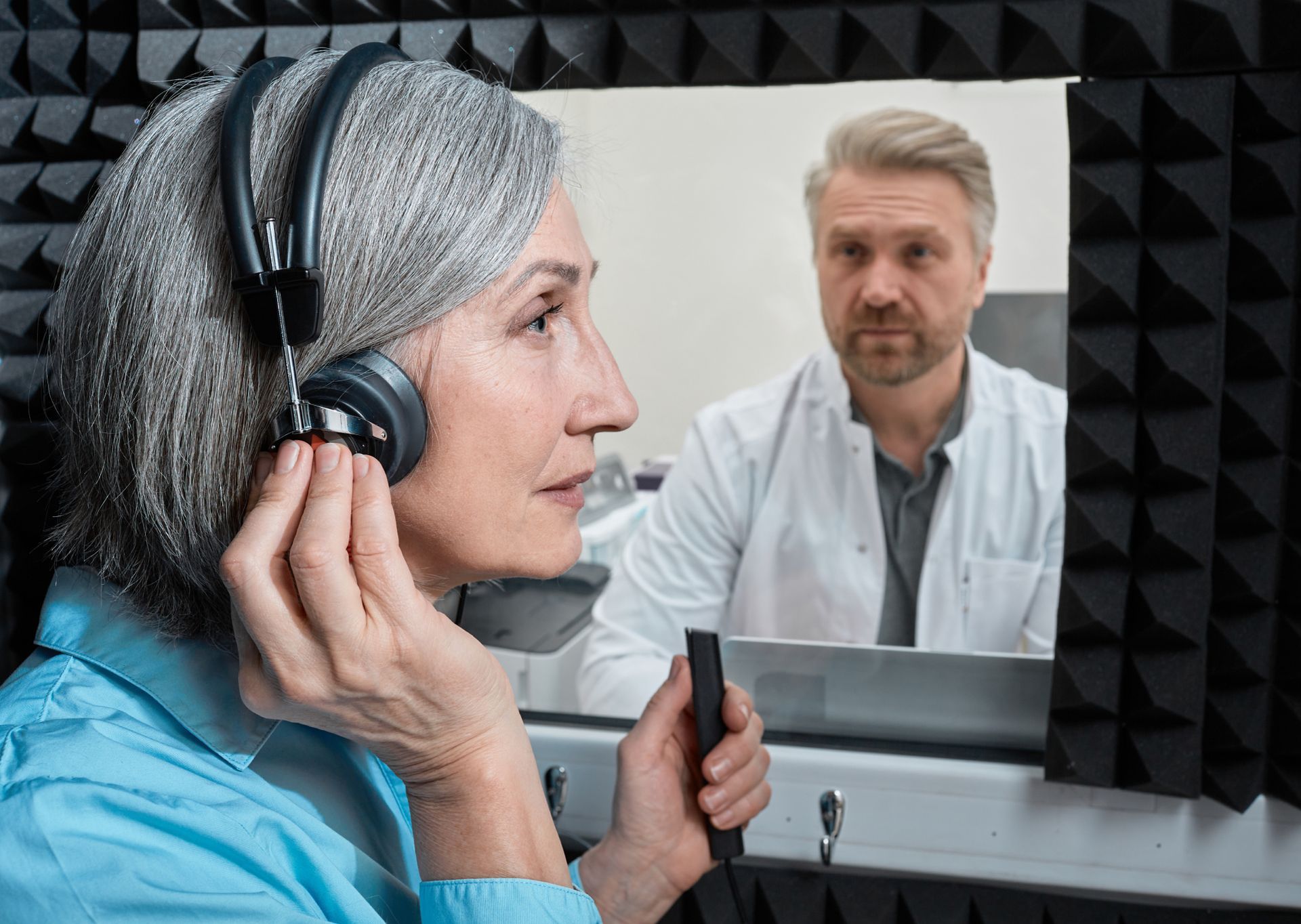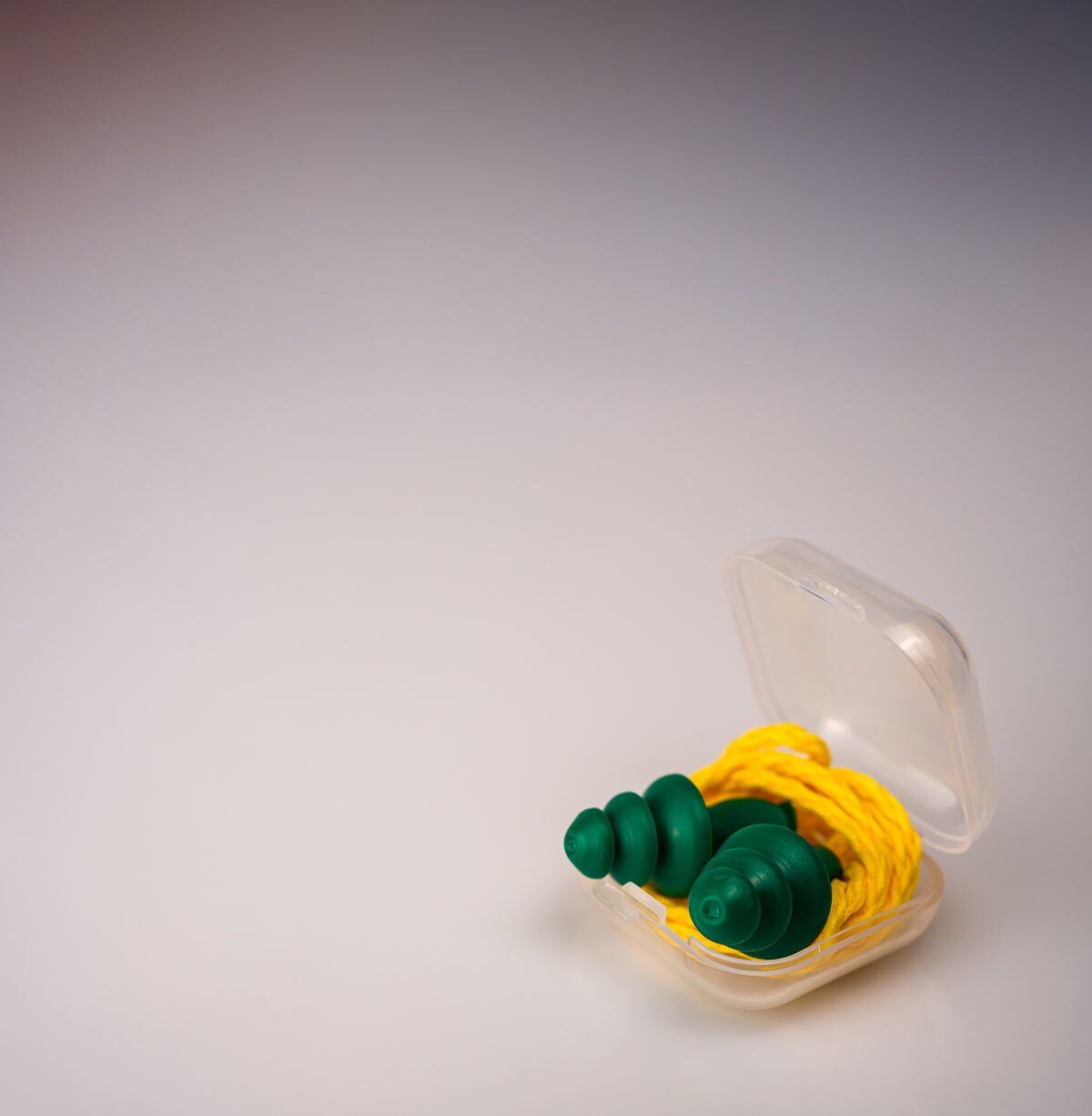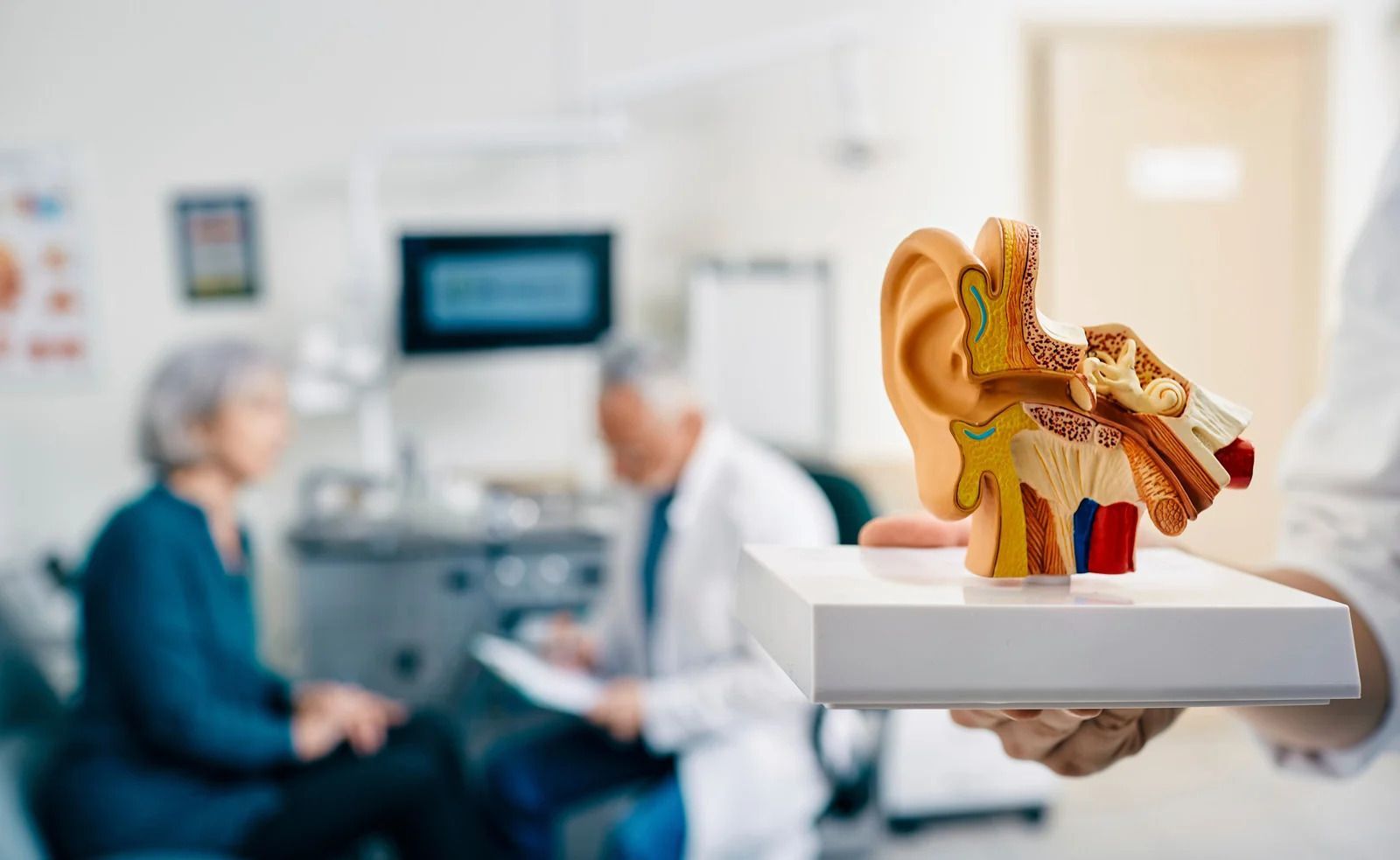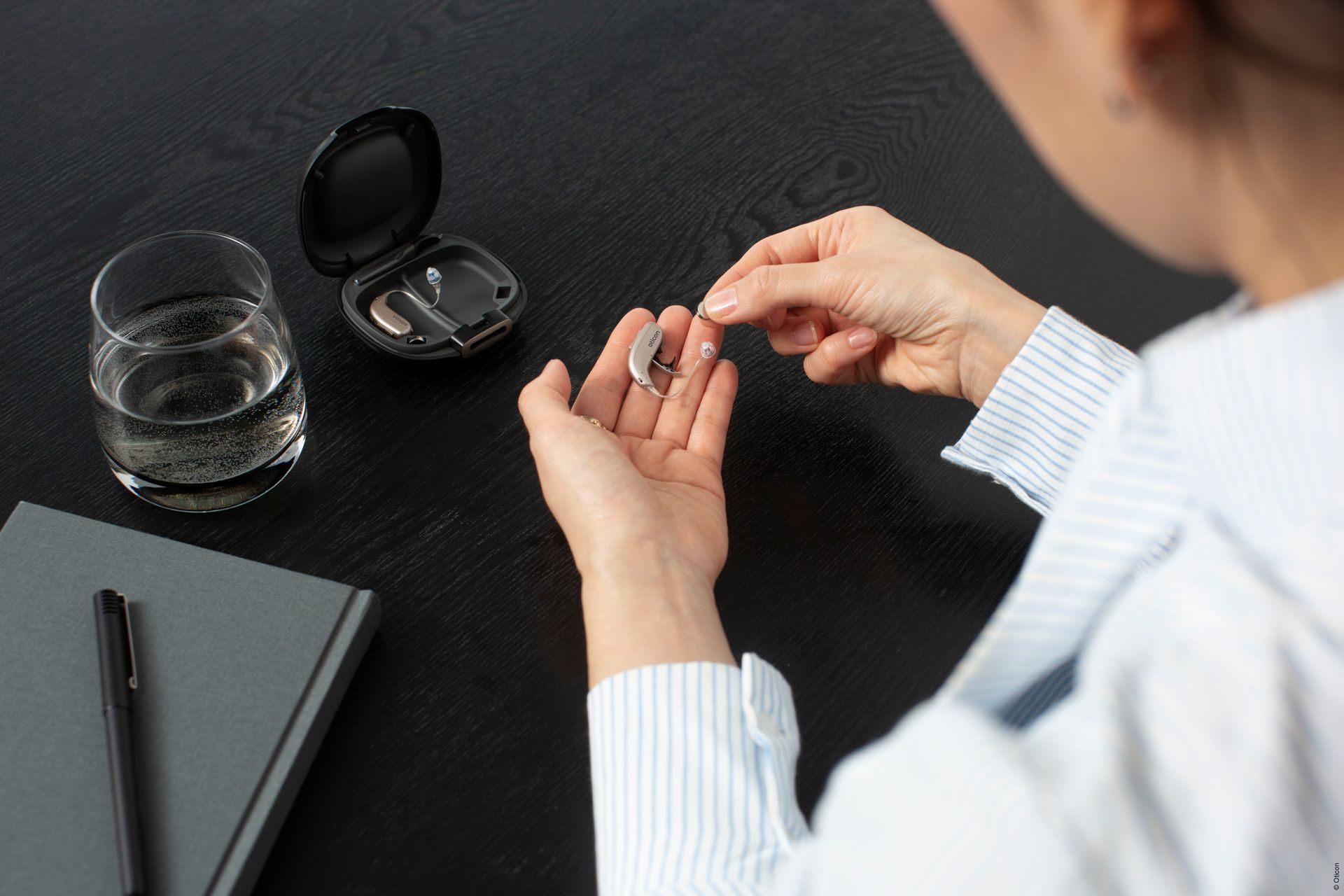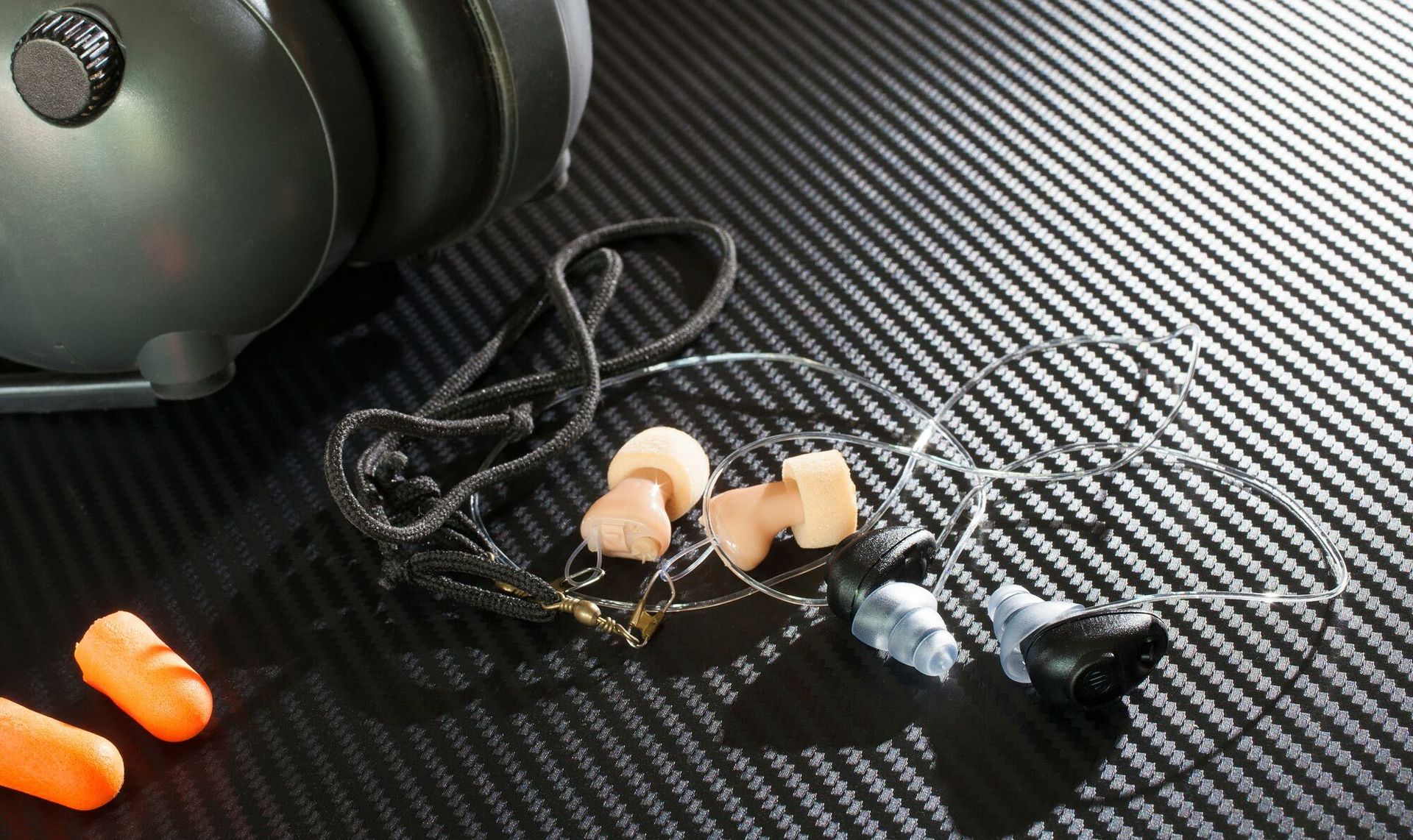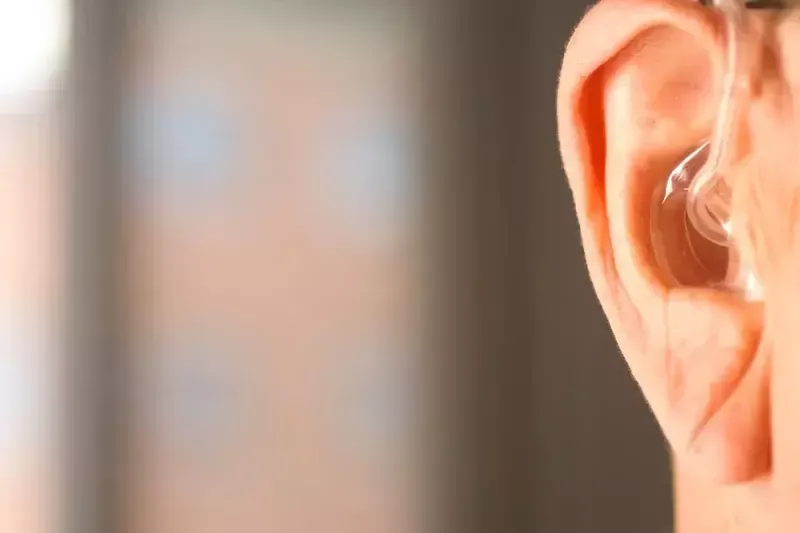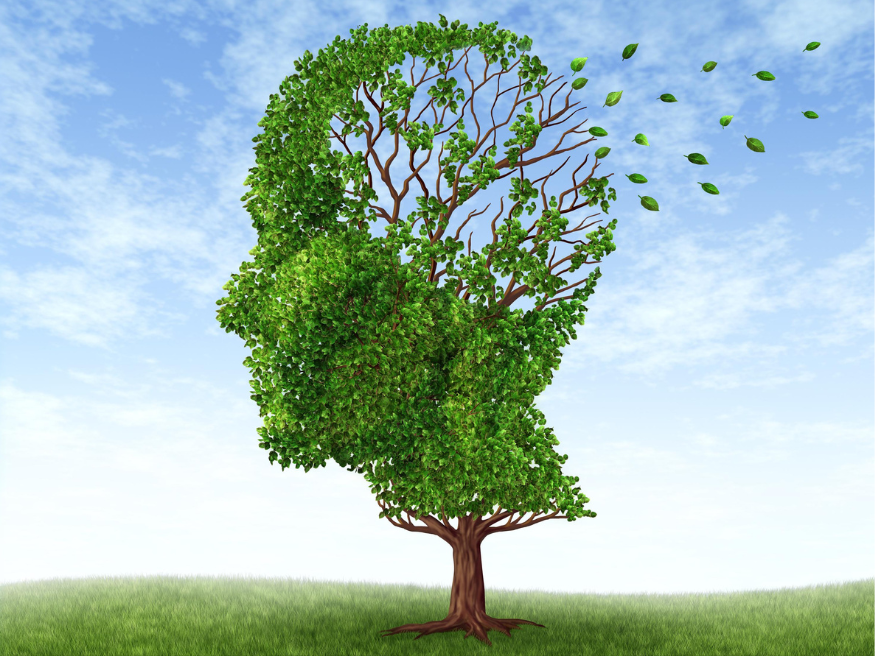The Benefits of Choosing an Audiologist Over Non-Prescription Hearing Devices in Lethbridge
Hearing loss affects millions of people worldwide, and almost 40% of Canadians. As awareness grows, so does the availability of solutions in the market. Over-the-counter (OTC), non-prescription, mail order, and other unregulated hearing devices might seem like a convenient and inexpensive option, but if you’re looking for optimal hearing health, consulting a trusted audiologist offers unparalleled benefits.
The team here at Audiology First is ready to provide you with the highest level of healthcare in Southern Alberta—something that self-managed solutions just can’t compare to.
It is possible to purchase unregulated hearing devices online in Canada, but they aren't the same as OTC hearing aids or prescription hearing aids. Let’s take a look at the difference.
What Are OTC Hearing Aids?
In the USA, hearing aids are regulated by the FDA, with over-the-counter (OTC) hearing aids being approved for sale two years ago. However, despite this approval, OTC hearing aids have not been popular with consumers. A 2023 survey by the American Speech-Language-Hearing Association (ASHA) found that only 2% of hearing aids purchased in the USA were OTC products. Furthermore, approximately one-third of those who purchased OTC hearing aids returned them for a full refund—between twice to three times the return rate of prescription hearing aids
With this in mind, let’s now learn about the different types of hearing loss, and why it’s important to see an audiologist regardless.
Understanding Hearing Loss
When people think of hearing loss, they typically just think that the volume needs to be turned up—but that’s far from the whole story. Did you know there are different types of hearing loss that audiologists are trained to identify? Let’s learn about them.
Types of Hearing Loss
Sensory Hearing Loss results from damage to the inner ear only, rather than the auditory nerve or brain. Sensory hearing loss often occurs due to aging, noise exposure, genetic factors, or even certain medications. Some people are born with forms of sensory hearing loss, while most people develop the problem over time. This type of hearing loss is typically permanent and is the most common form of hearing loss.
In our own extensive experience of testing self-fitted hearing devices in our own clinic, they routinely under-serve the person’s sensory hearing loss. In some rare cases, they can be far too loud – even to the point where they could damage an individual’s hearing. An audiologist is trained to precisely fit the hearing aid to every patient, based on experience and skill.
Neurological Hearing Loss (also known as retrocochlear hearing loss) is quite rare compared to other types of hearing loss, but to audiologists, cases of neurological hearing loss are a major medical concern.
Neurological hearing loss occurs when the auditory nerve is damaged or affected, making it difficult to transmit sound from the inner ear to the brain. Neurological forms of hearing loss can stem from life-altering medical conditions. Some causes of neurological hearing loss include brain or inner ear infections, brain damage from head injuries, vascular and metabolic condition, certain medications, aging, demyelinating diseases like multiple sclerosis, auditory neuropathy, or tumours compressing the auditory nerve, or the brainstem.
Misdiagnosis of neurological loss as a sensory loss is on the list of 'worst—case-scenarios' for audiologists. This is of major concern when it comes to an individual choosing to self-diagnose and self-fit hearing devices, because that individual may not receive the medical diagnosis and treatment they require.
Conductive Hearing Loss occurs when sound cannot efficiently pass through the outer or middle ear. Common causes include ear infections, fluid buildup, or blockages like earwax. This type of hearing loss can resolve on its own but is also the most likely type of hearing loss to require medical attention. Some forms of conductive loss can be treated with surgery, such as otosclerosis. Non-prescription – self fitted hearing aids cannot tell the difference between a hearing loss because of a middle ear tumour, an ear needing surgery, or an earwax buildup.
Mixed Hearing Loss is a combination of conductive and sensory or neural hearing loss, indicating issues in both the outer/middle and inner ear; causes can vary in combination.
As you can imagine, the treatment for each type of hearing loss can (and should) be well understood, and the treatment should be specific. Your audiologist can help prescribe the most appropriate treatment plan to prioritize your overall health.
As you can imagine, the treatment for each type of hearing loss can (and should) be different. Your audiologist can help prescribe the most appropriate treatment plan to prioritize your health.
The Role of an Audiologist
Audiologists don’t just sell hearing aids. Audiologists are diagnosticians—they find the root cause of the hearing problem, rather than just treating the symptoms. Not identifying the cause of the hearing problem could lead to complications that are less treatable. Misdiagnosis or inadequate self treatment can exacerbate your current hearing loss. In short, avoiding the audiologist may not be worth the risk.
Audiology First is the #1 audiology clinic in Southern Alberta, here are some of the services we offer our patients to provide them with the utmost level of care and attention:
- Hearing assessments
- Personalized treatment plans
- Advanced technology (including Otoscan; digital 3D imaging)
- Ongoing support
Apart from hearing loss, audiologists also address related issues like tinnitus (ringing in the ears), balance disorders, and hyperacusis (increased sensitivity to environmental sounds). This level of attention helps protect against long-term health interruptions by rounding out your healthcare with a dedicated specialist who knows and cares about you.
Limitations of Non-Prescription Hearing Devices
If you think you’re getting a deal by going with unregulated hearing aids…think again! While they’re often marketed as a quick-fix that won’t break the bank, they come with significant drawbacks that can potentially stagnate or worsen your health.
Inadequate Amplification
Without professional calibration and programming, non-prescription hearing devices are prone to amplifying sounds unevenly, which can make it difficult to understand people’s speech in noisy environments. This can also be disorienting and stressful for someone already experiencing hearing loss or other hearing-related conditions.
Improper Fit & Lack of Guidance
Non-prescription hearing devices try to offer a one-size-fits-all solution, but are you a one-size-fits-all person? Of course not. You have unique needs that deserve attention, and these devices just don’t meet the standard. No professional fitting. No guidance on care and proper use. Any costs saved upfront will most definitely be collected in the near-future.
Missed Medical Issues
Perhaps the most notable disadvantage to non-prescription hearing devices is that they can be the cause of missed medical issues that could’ve been caught with a regular checkup. Without a thorough evaluation from an audiologist, underlying medical conditions that are contributing to your hearing loss might go unnoticed.
Benefits of Choosing an Audiologist
Seeing one of our incredible audiologists for your hearing care delivers numerous advantages over non-prescription hearing devices.
Personalized Care, Treatment & Attention
Our audiologists strive to deliver the utmost in quality care to every patient that walks through our doors. Nobody is the same, and we treat everyone the way they should be treated—like an individual.
Quality Assessment & Advanced Technology
Based on a thorough selection of assessments, we will provide hearing aids and/or other treatment options that have been calibrated for the best fit, performance, and cost-savings. We have the latest technology in audiology, including Otoscan, the latest tool in 3D imaging.
Holistic Approach + Ongoing Support
Our team is highly-trained and ready to assist you with different hearing-related issues, such as tinnitus or vestibular disorders. Comprehensive care means addressing additional concerns and caring about who you are, not just putting band aids on symptoms. We’re here for you every step of the way, from first appointment to follow-ups to ongoing care.
Real Stories from Our Patients
Take a look at what one of our recent patients had to say about their experience here at Audiology First:
“Great service! Very knowledgeable and professional about hearing loss and hearing aids. State of the art equipment to help detect the levels of hearing loss. Highly Recommended! I recommend them to all my family and friends.” —Kay R.
When it comes to your hearing health, there is no substitute for qualified and professional care. Non-prescription hearing devices make a lot of promises, but fall short on almost all of them. Trust the professionals with your health.
Book in with one of our audiologists here at Audiology First, Southern Alberta’s #1 audiology clinic. Give us a call today: 403-394-9903


